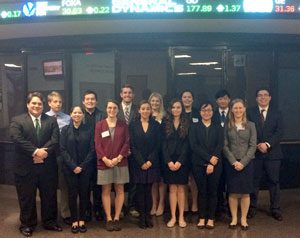Baylor University faculty provide leadership and service to major scholarly and professional organizations in our region and nationally. This includes prestigious national societies as well as organizations that are crucial to sustaining and advancing work across the disciplines and schools represented at Baylor. Such service and leadership highlights our faculty’s commitment and is a sign of their exceptional quality. Below is an alphabetical sampling of significant leadership positions held by Baylor faculty and deans, and a longer list of people serving can be found at: Broader List of Baylor Faculty Leadership.
William A. Booth: President, Association for Computer Educators in Texas
Shelley Conroy: President, The Texas Association of Deans and Directors of Professional Nursing Programs
Beverly Gaventa: President, The Society of Biblical Literature
Pete Grandjean: President, The Texas Chapter of the American College of Sports Medicine
Laura Hernández: Latina Commissioner, The Hispanic National Bar Association
Thomas Hibbs: President, The American Catholic Philosophical Association
Terry Maness: Board Member, The Association to Advance Collegiate Schools of Business
Stacie Petter: Region 1 (North and South America) Representative, The Association for Information Systems Council
Leah Teague: Women’s Network Executive Council Member, American Council on Education


